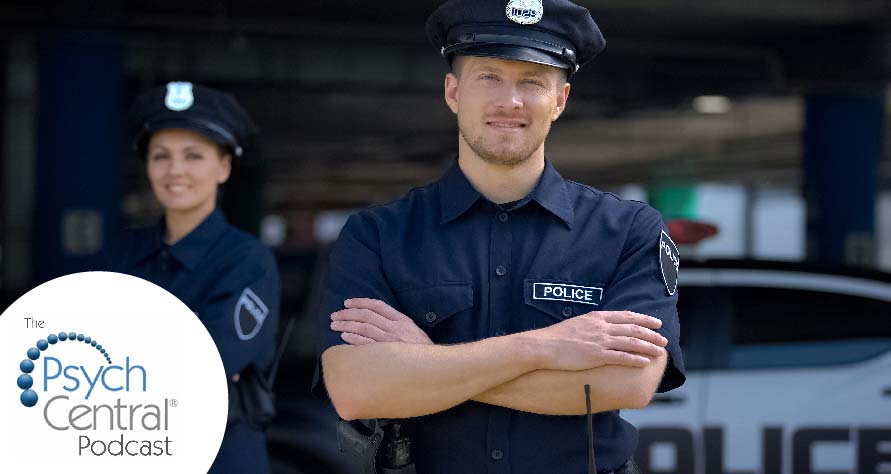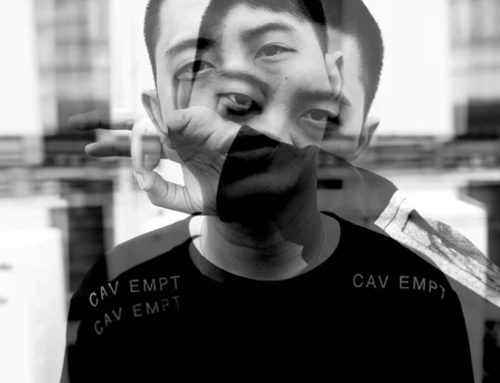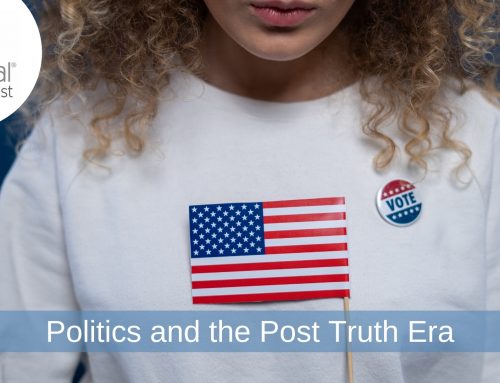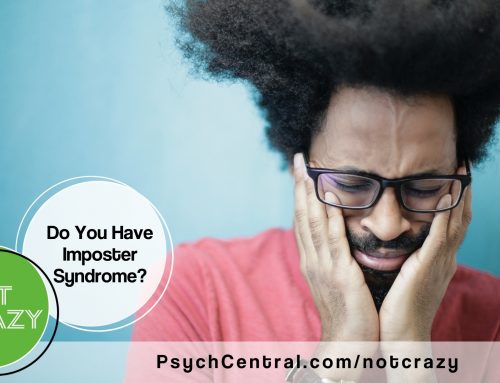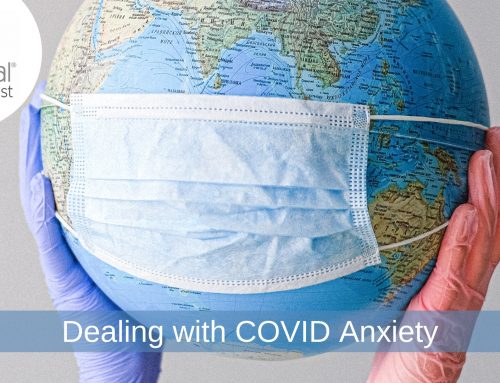Why are the police often called to handle mental health crises? And what are they trained to do once they get to the scene? In today’s show, Sergeant Matt Harris of the Columbus, Ohio Police Department sheds light on police officers’ role in the community and explains how they can help when someone is having a mental health emergency. Sgt. Harris also shares how his team tries to de-escalate the situation and what happens when de-escalation attempts fail. Click on the player below to listen now!
SUBSCRIBE & REVIEW
Guest information for ‘Policing- Mentally Ill’ Podcast Episode
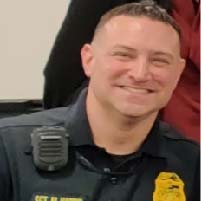
Matt Harris is a sergeant with the Columbus, Ohio, Division of Police and has been with the department for 22 years. He is currently assigned to the Mobile Crisis Response Unit where he supervises 5 police officers who co-respond to mental health crisis situations along with a social worker, licensed professional counselor, or other mental health clinician.
Computer Generated Transcript for ‘Policing- Mentally Ill’ Episode
Editor’s Note: Please be mindful that this transcript has been computer generated and therefore may contain inaccuracies and grammar errors. Thank you.
Announcer: You’re listening to the Psych Central Podcast, where guest experts in the field of psychology and mental health share thought-provoking information using plain, everyday language. Here’s your host, Gabe Howard.
Gabe Howard: Hello, everyone, and welcome to this week’s episode of the Psych Central Podcast. Calling into the show today, we have Sergeant Matt Harris with the Columbus Police Department. Sergeant Harris is with the Mobile Crisis Response Unit, supervising five police officers who correspond to mental health crisis situations, along with a mental health clinician. Sergeant Harris, welcome to the show.
Sgt. Matt Harris: Thank you, Gabe. Good to be here.
Gabe Howard: Well, I’m very glad that you can take time out of your busy schedule. You know, right now we live in the age of the coronavirus quarantine. While stay and shelter orders are starting to lift and places are slowly reopening, that’s not the case everywhere in the country. And because here in Ohio, everything closed shelter in place in full effect. And obviously police officers are essential. So from your perspective, Sergeant Harris, everything has been shut down?
Sgt. Matt Harris: It has. The strangest thing that that I feel every day when I’m driving around the city is driving in the middle of downtown Columbus at broad and high on a weekday during business hours. And it feels like a Sunday. And it also feels like it’s third shift. And it also feels like it’s Christmas because there’s just nobody out. And I’ve never seen anything like it before.
Gabe Howard: It is a bit of an eerie feeling, you know, downtown for people that don’t know Columbus, Ohio, 14th largest city downtown on a business day is busy. It’s not New York City or Chicago busy, but it’s certainly not. Traveling is so easy right now.
Sgt. Matt Harris: That’s exactly right. I’ve never been able to get from point A to point B so efficiently. And it feels good.
Gabe Howard: But the positives, they’re not outweighing the negatives at this point, especially since you’re a C.I.T. officer now, C.I.T. is Crisis Intervention. You work with people who are in well, in the midst of a of a mental health, a mental illness crisis. I guess the question is, is how does that look in the age of the quarantine? Have you been pulled off of that duty or are you getting more calls? What’s your day to day life aside from being able to drive everywhere very efficiently?
Sgt. Matt Harris: Well, we haven’t been pulled off of the duties, the mental health calls are still coming in to 911 or they’re coming into the non-emergency number as well. We’re still getting referrals from other officers and community members. As far as the numbers go, I don’t really know. I’d have to look at CAD data to see. But anecdotally speaking, it seems like the mental health calls have been steady and not that much different.
Gabe Howard: I have not ever had to call your unit and I sincerely hope that I never do. But I have to tell you, I like the idea that it’s out there, because if I get sick, if I’m in crisis, unfortunately, the police are who I call it. It’s a little bit backwards, right? It would be like if somebody broke into my house and I called an ambulance. That’s sort of how it feels. Can you talk about that for a moment? Because I think many people are just confused about why somebody who’s having an illness, somebody who is sick, is calling the police in the first place.
Sgt. Matt Harris: Yeah, I think that that is a huge area of discussion, I’ve heard you talk about that on some of your other episodes and I get that it doesn’t necessarily make sense. The best thing I can come up with to try to provide clarity is if you are in a controlled environment, so say you have an illness and you’re in the hospital. Whether that be a physical illness or a mental illness, it is a controlled environment. You have doctors and nurses and techs and people who have every resource at their disposal and training and the ability to help you in whatever way that you need when you are in that controlled environment. It is pretty well assured that you are in an area where there is no access to weapons. And there is a whole complement of staff members that if something goes sideways to the point where a person becomes combative or dangerous in some way, it can be controlled. When you are in an uncontrolled environment such as your apartment or in the middle of the city, none of those things that I just described exist. Right?
Sgt. Matt Harris: So anyone who we encounter, whether that person is suffering from a mental health situation or not, might have a gun in their waistband. They might have a pipe that they picked up. They might try to run out into traffic in front of a car that could hit them and could hit somebody that is trying to stop them from running out in the traffic. So it all has to do with the fact that when we’re responding in the community, you have to be prepared to deal with anything because it is a completely uncontrolled environment. Now, I don’t mean to say or imply that people always want to pick up a weapon. The problem is that it is a possibility. So if we sent folks into the community to respond to these crisis situations without the ability to deal with potentially combative scenarios, it could be it could go sideways real quick. That kind of provides some clarity. Do you think?
Gabe Howard: It really does. And it’s understandable. And this is sort of the this is the struggle of mental health advocacy. So. And I want everybody to love my guest because, you know, he’s a police officer and he’s helping people like me. But when you walk into my house, we’re on different sides. Right? It’s just the way that it is. And this is what scares my community. And I want to kind of give you an opportunity to address it from your point of view, because I think it gets missed. One of the things that I read all the time is that people with mental illness are much more likely to become victims of violent crime than to perpetrate violent crimes. That is 100 percent true. But we don’t need to talk about that because we’re talking specifically about when you walk in and somebody like me who is suffering from psychosis, who is not in their right mind. And when you walk in, I think you’re a blue dragon. I’m not attacking a police officer. I’m not even trying to hurt a police officer. But I am defending myself against a blue dragon. Now, of course, the problem is, is that anything that I do to the Blue Dragon affects you potentially gravely. Sergeant Harris. So that is sort of what sets up the issue. What happens more often than not is that we just get arrested. We don’t get de-escalated. And we’re not acknowledged that we have any sort of illness issue or anything like that. We’re just. Well, you assaulted a police officer and off to jail we go, but your unit is trying to do something about it. What do you do about the person who’s trying to attack you and hurt you? But you know that it’s not they’re not in their right mind. Like, how do you handle that? Because you can’t just let me slay the dragon.
Sgt. Matt Harris: Well, that’s exactly right. And I completely hear everything you’re saying. I just want to acknowledge that the officers and the clinicians that I work with every day. We completely understand the concept of the blue dragon or maybe maybe we’re the reptilians who are attempting to take over the world or maybe we’re the demons that came out of the drywall. We have been doing this long enough to where, you know, the concept of what you’re talking about has become very clear. So what we try to do is basically not make it worse. So when we get there, the person who called the cops will be directed outside and they will be speaking with the mental health clinician that we work with, that we co-respond with. And that clinician will be gathering information from them, trying to better understand what’s going on. We want to de-escalate the best way that we can, which is normally staying very calm, talking softly, talking slowly and respecting personal space, giving the person in crisis an opportunity to go from that vision of the blue dragon to maybe it clears up a little bit and maybe with some soothing conversation, we can come to the conclusion that it’s actually not the reptilians or not the blue dragons and somebody that’s there to help them. Now, sometimes that works and sometimes it doesn’t. But that is always the very first goal is to de-escalate, to where the blue dragon, being the police officer, does not need to be slayed. And
Gabe Howard: Right. Right.
Sgt. Matt Harris: Hopefully, hopefully we don’t get slayed and hopefully we can talk this individual into coming with us peacefully if that’s the route that we need to go.
Gabe Howard: My second question in this whole thing is you’re compassionate people, you don’t want anybody to have a bad outcome. But, you know, de-escalation doesn’t always work. This is not always an option. I mean, I know what this is like from my point of view, intimately. And I’m desperately trying to see it from your point of view where somebody is screaming at you, attacking you, yelling at you, they’re breaking the law. The reason that they break the law may be reasonable or understandable, but make no mistake, you were called for a reason and now you have to do something about it. I kind of want to ask you how you feel about taking mentally ill people to jail, but it seems like a mean-spirited question. Can you talk about that for a moment? Because it’s it is a reality.
Sgt. Matt Harris: Yeah, of course. I actually kind of like the slaying of the dragon scenario because it can help people to maybe understand if somebody is attacking or being violent or trying to slay that dragon. The cops are probably the best equipped to be able to handle that. Now in the hospital scenario, like I said, it’s a controlled environment. So, you know, there’s a whole group of people that can handle that. But in the outside world where it’s uncontrolled, this is why the cops are called as opposed to anybody else, because we’ve got training to restrain if need be. We have a whole tool belt. You know, I’ve got a walkie talkie. I can call for help. I’ve got pepper spray. I have a taser. I have a firearm that hopefully I never, ever have to use. But these are some of the reasons why the cops are involved in these scenarios as opposed to to somebody else who probably isn’t in a position where they can really defend themselves as well as what a police officer can. And they may not be able to call for help as efficiently as a police officer can. And I can get people who are driving with lights and sirens to get there fast to help me, whereas somebody else can’t. So I just kind of wanted to paint that picture a little bit.
Gabe Howard: I think it’s a fair point. Thank you.
Sgt. Matt Harris: As far as jail is concerned, I can tell you this. The Columbus police C.I.T officers and more specifically, the mobile crisis unit, my unit, we very rarely take somebody having a mental health crisis to jail. Occasionally, we may get word that somebody that is in crisis, maybe they’ve got warrants for their arrest. And then at that point, we’re obligated by the courts to bring the person in. So that could be one potential scenario where the trip might be to the jail instead of the hospital. However, it’s very rare — that doesn’t happen very often. The other times that this could happen would be, number one, unable to de-escalate a person. It just didn’t work that somebody is in full psychosis. There are often times where there’s no communicating. There’s simply no way to get through. And at that point, what we will do is we will try to restrain in a very humane way without using weapons, preferably. And if we can get that person under our control, probably involves putting cuffs on them and getting them into the back of a police car that has bars where they can’t break the window out. You know, while we’re on the way to the hospital and that’s the preferred course of action. However, if it gets so out of control where we’re unable to restrain a person or if somebody comes out of nowhere and sucker punches an officer, which I have seen happen before, because, again, they need to slay the dragon at that point.
Sgt. Matt Harris: Assaulting a police officer is a felony in Ohio. And generally, we will go with that. And the reason that we’re gonna go with that, Gabe, is because the court system has leverage. In other words, they can say to a person, we understand you have this illness. You’ve got to follow your doctor’s instructions. You’ve got to take these antipsychotics. You’ve got to take this medication. Otherwise, if you don’t, the court can order you into jail. That is leverage that oftentimes we need, because if we go to the hospital, the hospital will stabilize and sometimes they’ll do long term care and keep somebody for a while or they may get sent to one of the long term facilities. But if and when a person comes out of treatment, oftentimes people don’t want to take the medication and we can end up in a situation where we spin our wheels. Right? We end up right back there in that same situation where they’re slaying the dragon again. But there’s no real piece to prevent that from happening again with the hospital system only. So sometimes the courts can actually provide motivation to stay on course to prevent oneself from decompensating to the point of dangerousness, which is really favorable for everybody, because then it keeps the person out of trouble. It keeps other people, neighbors, the police officers that are responding. It’s better for everybody.
Gabe Howard: We’ll be right back after these messages.
Sponsor Message: This episode is sponsored by BetterHelp.com. Secure, convenient, and affordable online counseling. Our counselors are licensed, accredited professionals. Anything you share is confidential. Schedule secure video or phone sessions, plus chat and text with your therapist whenever you feel it’s needed. A month of online therapy often costs less than a single traditional face to face session. Go to BetterHelp.com/PsychCentral and experience seven days of free therapy to see if online counseling is right for you. BetterHelp.com/PsychCentral.
Gabe Howard: We’re discussing policing in the age of the coronavirus quarantine with Sergeant Matt Harris. One of the things that keeps coming up over and over again in this debate is I’m not being negative to my loved one. I love them. Do you find that well-intentioned people who absolutely, unequivocally love the person whom they called the police on are also just doing all of the wrong things and creating issues? And then how do you handle that? Because I imagine that it’s really hard to look at somebody who, you know, is well-intentioned and saying what you’re doing is hurting the situation because they’re going to clap back immediately, but I’m only trying to help.
Sgt. Matt Harris: We usually run into one of two scenarios, Gabe. So the first scenario is we show up and the loved ones, the family members are not helping. They are making things worse. Sometimes when we leave after work, it’s all done. We say to ourselves. Oh, my goodness. You know, this person would be so much better off if they didn’t have these people in their lives. We see that a lot. And it’s not that the family members or whoever it is providing the adversity, I guess we would say it’s not that those people mean to do that. It’s not that they’re trying to be difficult. They just simply usually do not understand how to deal with the situation. They don’t necessarily understand the needs of their loved one. They are frustrated. They’ve been dealing with this for a long time. They tend to be pissed off because they feel failed by the system because nobody’s helping them or people show up to help, but then it starts up again and it spins its wheels. So that is a very common theme. So those are the folks that we need to get out of the room. Hey, come talk with us over here. They’re not helping the person in crisis in that moment.
Sgt. Matt Harris: Now, the other side of it is the folks who say go to NAMI meetings, the people who are educated on their loved ones’ condition and who really have taken time to understand what their friend or family member is going through. Maybe they’re self educated. Maybe they’ve gone to support groups. Maybe they have their own therapist that they work through these issues with. But that group of people, they tend to kind of get it and they will practice de-escalation on their own before we get there. And we can actually watch them doing really well with their loved one. And sometimes we need that person to actually help us get the person in crisis to do what you know, whatever the goal is, if we’re trying to get them into a cruiser so we can go to the hospital. And that’s oftentimes we’ll have the loved ones who are in the know can help us and they can kind of coax their family member into going along with whatever the best option is. So I don’t really see a whole lot in the middle, at least not based on my own personal experience. It’s usually kind of one or the other.
Gabe Howard: One of the things that we talked about when we use the slay the blue dragon analogy, is that the person with mental illness isn’t trying to be a problem. They’re a good person deserving of care and respect and love and resources. And that’s what makes this whole thing hard, because you can be all of those things and still be a danger to yourself or others and needing of police intervention. Along the same lines, as you said, there are people who they love their family, they love their children. They love the person that they’re trying to help, but they, too, are hurting them now. Are you allowed to intervene on behalf and get those people some place where they can become a better support system? Caregiver, friend, roommate, loved one?
Sgt. Matt Harris: Well, here’s well, here’s what I do. I always I advocate for people to get involved with NAMI because I just have to believe that. If you surround yourself with a group of people who have been there, who have been in a similar way or are in a similar situation with a loved one who suffers from mental illness, that can only be a good thing. You can learn from one another. You can go to meetings. You can go to workshops. You can educate yourself on how do I react in this scenario if my loved one is in the midst of a manic episode and they are posturing and acting out and becoming aggressive? If nobody ever taught that mother or that father or that sibling, what they’re supposed to do, how to better handle that situation, then things are not going to necessarily go well. So I tell people all the time or I encourage people all the time to seek out help in whatever way they want to, to try to better understand what their loved one is going through and how to better respond when they’re in crisis.
Gabe Howard: It does sound to me like you’re saying that education really helps all sides. And I just bring this up because there just is a lot of misunderstanding, really, in all of society. But even when we look at the people who are working through the mental health issues and are advocating for mental health issues and are living with mental health issues or have a loved one with mental health issues or are a police officer, there just seems to be a lot of in-fighting even among us. And I’d really like to see us all get on the same page so that we can move forward. I know this is a big question and please, you are not required to answer it. But do you have any advice for the mental health advocacy community who are often split about the best way to move forward?
Sgt. Matt Harris: The first thing that comes to mind is the global issue of how do we improve? How do we move forward is we have to have reasonable expectations because most people probably think, oh, this person is ill. They have some mental health issues, doctor or hospital, and get it fixed. Right? Well, as we all know, it’s not that simple. Nobody has a magic wand. The pharmaceutical companies have invented lots of different drugs over the years that can help with symptomology and it can help with mental health issues. But as has been explained to me by many mental health consumers, sometimes it takes a year to figure out the right combination of medications, and sometimes the medications stop working and have to be readjusted. And there’s all of these different factors. You can’t take a person to treatment and expect that overnight the treatment facility is going to fix everything and the problems are going to go away. So I’ve had to adjust my expectations because as you might imagine, many of the calls that my unit responds to, how can I say this? I don’t want to say repeat, customers. But a lot of the same folks that we get to know who are sort of in and out of the system.
Sgt. Matt Harris: And people are always asking us, you know, what can we do? How do we know this has been going on for years? And I’m just honest. And I tell everybody there is no magic answer here. We do the best we can. Meaning that the advocates, you know, people who are in your position, Gabe, you do the best you can. And my team, we do the best we can. We take people to the hospital. They do the best that they can. But we’re limited by resources, we’re limited by the law sometimes we’re limited by all of these different factors. So I always go back to moving forward. What do we do? And the best thing I can come up with is keep doing the best that we can. And hopefully there’s a natural state of progression, maybe in the pharmaceutical industry, maybe in the brain science realm, maybe with the way that we police involving mental health crisis. Everything progresses over time.
Gabe Howard: I really like what you said about, you know, patience and understanding and that we’re all doing the best that we can. I think that so often in this debate, one side believes that they’re doing the best that they can, but they believe that the other side is just intentionally making things worse or they have malicious intent or they’re uncaring when in actuality, what I’ve seen from working on all sides and frankly, from working all over the country is that you’re right, everybody is doing the best that they can in every area except communication. I don’t think that we’re communicating the best that we can because we’re often ignoring people when we don’t want to hear it. I speak to many, many people from family members to people living with mental illness like myself, and they say things like, well, I’m not going to talk to the police. They just want to arrest my son or I’m not going to talk to the police. They just want to arrest me. And I think that’s so sad and so cynical. But more importantly, it’s also not been my experience. I’m not saying that it never happens. I am certainly not saying that there’s not just so many tragic stories out there, but I don’t think they’re coming from a malicious place. I think they’re often coming from a place of misunderstanding. You know, we’re almost out of time. But all over the country, they don’t have crisis response units. There’s not a Sergeant Matt Harris in every single city and every single town and every single state. How did Columbus, Ohio, get one and how can every place get one?
Sgt. Matt Harris: It all comes down to resources and the right people being involved. So there was a group of individuals. I’d like to give Commander Chris Bowling and soon to be Commander Dennis Jeffrey accolades here, because those were two individuals that saw this as something that we needed. And not only did they know that we needed to do something like this, but they actually made it happen by partnering with our local mental health intake agency, crisis agency, Netcare. And put this idea on the table for both sides to talk about. And the police side and the Netcare side were able to come up with this partnership that we have actually not just conceptualize it, but put it into action. And next thing you know, we have social workers and counselors riding in the police car with officers responding to people in the community that need that service. So it’s the right people and it’s resources. So in Franklin County, we’re fortunate enough that there was funding on both sides to provide police officers and to provide mental health clinicians, paid positions as a full time job to do this this work. Many other areas within Ohio and across the United States, likely don’t have the funding or the resources to put this together. And that’s tragic. But that’s kind of the current state of affairs.
Gabe Howard: Sergeant Harris, what do you say to the people who say that, you know, in light of COVID-19 and the pandemic and the economic issues, that this is just something that we can’t afford right now and that it needs to be shut down so that we can use that money in, and I am making air quotes, in a better area? What do you say to those folks that are wondering about that right now?
Sgt. Matt Harris: I would say that whether they’re aware of it or not, there is a need to respond to our community, specifically to people in our community who are suffering from mental health issues, whether there is a pandemic that’s currently playing out or not. That need is always going to be there if we don’t have the correct resources. These situations don’t get better. They tend to decompensate further and get worse. And then you have an even bigger problem. So I advocate 100 percent that we need to to maintain our crisis unit and that we need to respond to mental health emergencies in the community, regardless of what the health crisis situation may or may not be. In fact, I would say that most would agree that the health pandemic has been quite anxiety inducing for many people. If you already have a high level of anxiety or if you suffer from an anxiety disorder, the crisis isn’t making it better. It’s going to make it worse, more likely than not. So these responses that we provide are much needed.
Gabe Howard: I could not agree more. Thank you, Sergeant Harris, for being here, we really appreciate it. And thank you everybody for listening in. If you like the show, please subscribe. Share us on social media. Use your words. Tell people why they should listen. We have a private Facebook group that you can join. It’s absolutely free. Just head over to PsychCentral.com/FBShow and it’ll take you right there. And remember, you can get one week of free, convenient, affordable, private online counseling anytime, anywhere, simply by visiting BetterHelp.com/PsychCentral. And we will see everyone next week.
Announcer: You’ve been listening to The Psych Central Podcast. Want your audience to be wowed at your next event? Feature an appearance and LIVE RECORDING of the Psych Central Podcast right from your stage! For more details, or to book an event, please email us at show@psychcentral.com. Previous episodes can be found at PsychCentral.com/Show or on your favorite podcast player. Psych Central is the internet’s oldest and largest independent mental health website run by mental health professionals. Overseen by Dr. John Grohol, Psych Central offers trusted resources and quizzes to help answer your questions about mental health, personality, psychotherapy, and more. Please visit us today at PsychCentral.com. To learn more about our host, Gabe Howard, please visit his website at gabehoward.com. Thank you for listening and please share with your friends, family, and followers.
This article originally appeared on Psych Central as Podcast: Police Response to Quarantined Mental Health Crisis.



